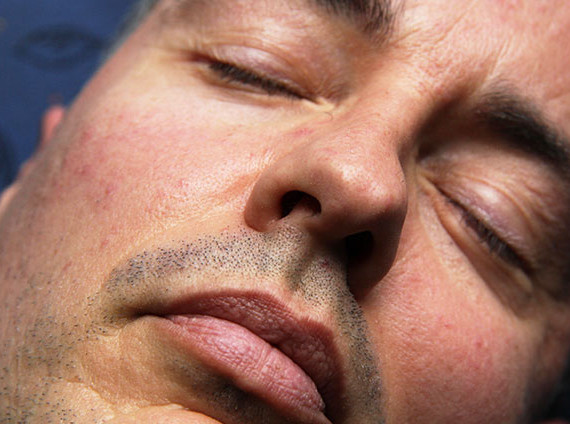
[dropcaps type=’square’ font_size=’36’ color=’fffffff’ background_color=’8e2b28′ border_color=’8e2b28′]1[/dropcaps] Sleep is a time when your body and brain shut down for rest and relaxation. No evidence shows that any major organ (including the brain) or regulatory system in the body shuts down during sleep. Some physiological processes actually become more active while you sleep.
[dropcaps type=’square’ font_size=’36’ color=’fffffff’ background_color=’8e2b28′ border_color=’8e2b28′]2[/dropcaps] Getting just 1 hour less sleep per night than needed will not have any effect on your daytime functioning. This lack of sleep may not make you noticeably sleepy during the day. But even slightly less sleep can affect your ability to think properly and respond quickly, and it can compromise your cardiovascular health and energy balance as well as the ability to fight infections, particularly if lack of sleep continues.
[dropcaps type=’square’ font_size=’36’ color=’fffffff’ background_color=’8e2b28′ border_color=’8e2b28′]3[/dropcaps] Your body adjusts quickly to different sleep schedules. Your biological clock makes you most alert during the daytime and most drowsy at night. Thus, even if you work the night shift, you will naturally feel sleepy when nighttime comes.
[dropcaps type=’square’ font_size=’36’ color=’fffffff’ background_color=’8e2b28′ border_color=’8e2b28′]4[/dropcaps] People need less sleep as they get older. Older people don’t need less sleep, but they often get less sleep or find their sleep less refreshing. That’s because as people age, they spend less time in the deep, restful stages of sleep and are more easily awakened. Older people are also more likely to have insomnia or other medical conditions that disrupt their sleep.
[dropcaps type=’square’ font_size=’36’ color=’fffffff’ background_color=’8e2b28′ border_color=’8e2b28′]5[/dropcaps] Extra sleep at night can cure you of problems with excessive daytime fatigue. Not only is the quantity of sleep important but also the quality of sleep. Some people sleep 8 or 9 hours a night but don’t feel well rested when they wake up because the quality of their sleep is poor.
[dropcaps type=’square’ font_size=’36’ color=’ffffff’ background_color=’8e2b28′ border_color=’8e2b28′]6[/dropcaps] You can make up for lost sleep during the week by sleeping more on the weekends. Although this sleeping pattern will help relieve part of a sleep debt, it will not completely make up for the lack of sleep.
[dropcaps type=’square’ font_size=’36’ color=’fffffff’ background_color=’8e2b28′ border_color=’8e2b28′]7[/dropcaps] Naps are a waste of time. Although naps do not substitute for a good night’s sleep, they can be restorative and help counter some of the impaired performance that results from not getting enough sleep at night. Naps can actually help you learn how to do certain tasks quicker. But avoid taking naps later than 3 p.m., as late naps can interfere with your ability to fall asleep at night. Also, limit your naps to no longer than 1 hour.
[dropcaps type=’square’ font_size=’36’ color=’fffffff’ background_color=’8e2b28′ border_color=’8e2b28′]8[/dropcaps]Snoring is a normal part of sleep. Snoring during sleep is common, particularly as a person gets older. Loud, frequent snoring can also be a sign of sleep apnea, a serious sleep disorder that should be treated.
[dropcaps type=’square’ font_size=’36’ color=’fffffff’ background_color=’8e2b28′ border_color=’8e2b28′]9[/dropcaps] Children who don’t get enough sleep at night will show signs of sleepiness during the day. Unlike adults, children who don’t get enough sleep at night typically become more active than normal during the day. They also show difficulty paying attention and behaving properly. Consequently, they may be misdiagnosed as having attention-deficit hyperactivity.
[dropcaps type=’square’ font_size=’36’ color=’fffffff’ background_color=’8e2b28′ border_color=’8e2b28′]10[/dropcaps] The main cause of insomnia is worry. Although worry or stress can cause a short bout of insomnia, a persistent inability to fall asleep or stay asleep at night can be caused by a number of other factors. Certain medications and sleep disorders can keep you up at night. Other common causes of insomnia are depression, anxiety disorders, and asthma, arthritis, or other medical conditions with symptoms that become more troublesome at night. Some people who have chronic insomnia also appear to be more revved up than normal, so it is harder for them to fall asleep.